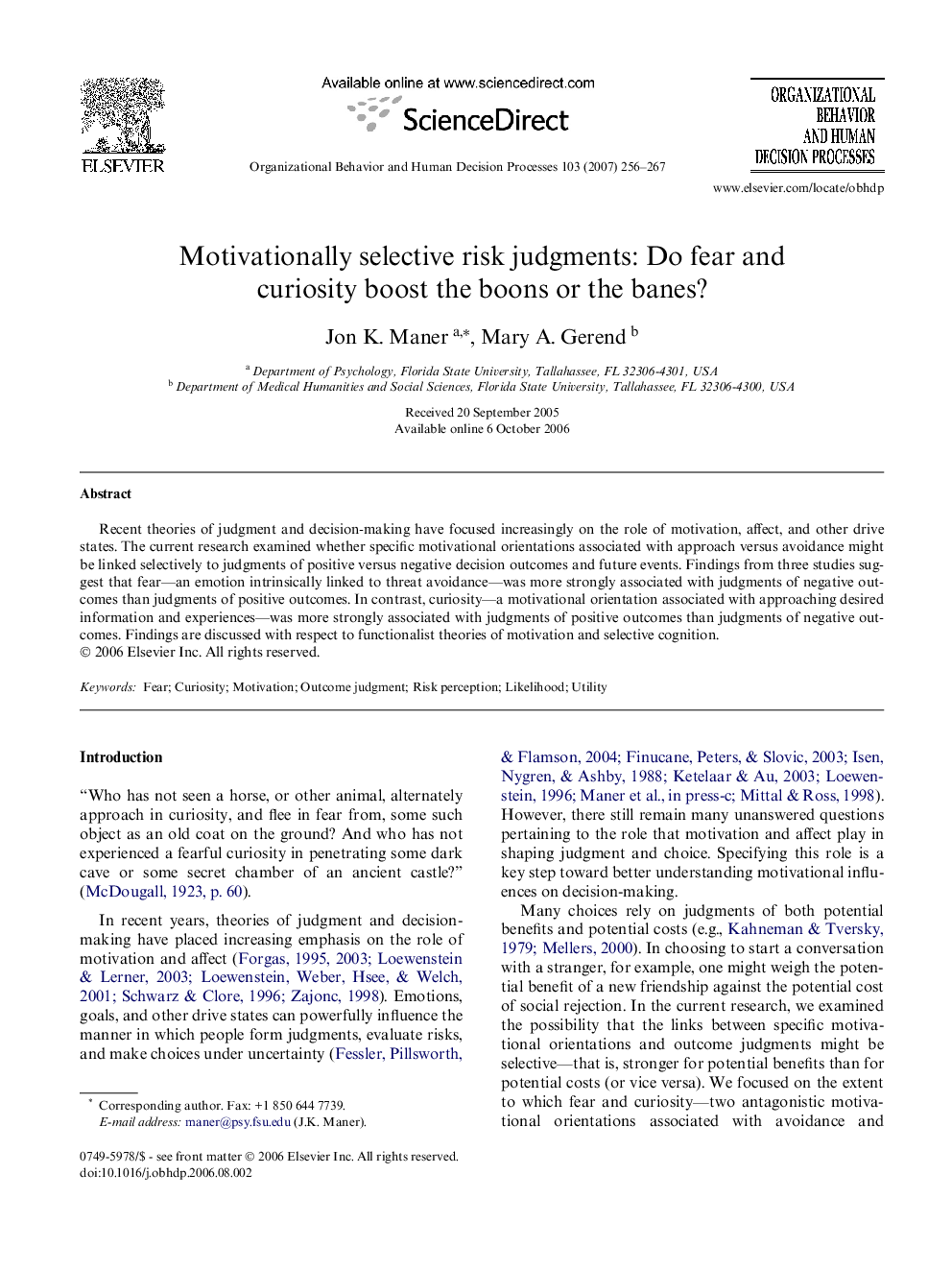| Article ID | Journal | Published Year | Pages | File Type |
|---|---|---|---|---|
| 888934 | Organizational Behavior and Human Decision Processes | 2007 | 12 Pages |
Recent theories of judgment and decision-making have focused increasingly on the role of motivation, affect, and other drive states. The current research examined whether specific motivational orientations associated with approach versus avoidance might be linked selectively to judgments of positive versus negative decision outcomes and future events. Findings from three studies suggest that fear—an emotion intrinsically linked to threat avoidance—was more strongly associated with judgments of negative outcomes than judgments of positive outcomes. In contrast, curiosity—a motivational orientation associated with approaching desired information and experiences—was more strongly associated with judgments of positive outcomes than judgments of negative outcomes. Findings are discussed with respect to functionalist theories of motivation and selective cognition.
